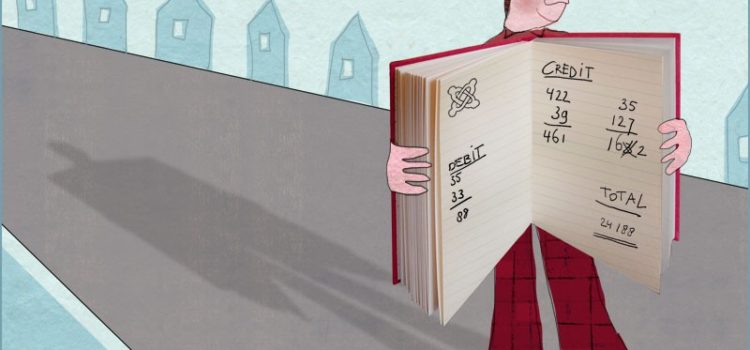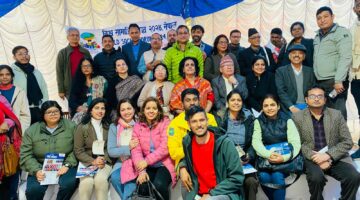Subash Dahal

Nepal’s budget transparency score has dropped according to the latest Open Budget Survey (OBS) report published by the International Budget Partnership. The report stated that transparency score of the country has decreased to 41 in 2019 from 52 in 2017. It provides a telling snapshot of Nepal’s current practices related to budgetary information disclosure, opportunities for public engagement in the budget cycle, and effective checks and balances.
The survey was completed using internationally accepted criteria to assess public access to central government budget information, formal opportunities for the public to participate in the national budget process and the role of budget oversight institutions such as the legislature and national audit institutions (Office of Auditor General, Nepal) in the budget process based on a questionnaire completed in each country that assess what occurs in practice, rather than what is required by law.
Government budget decisions – what taxes to levy, what services to provide, and how much debt to take – affect how equal a society is and the wellbeing of its people, including whether the most disadvantaged will have real opportunities for a better life. Therefore, it is essential that governments inform and engage the public on these vital decisions that impact their lives.
OBS 2019 finds weak transparency and oversight in government budgeting as well as few opportunities for the public to participate in shaping budget policies or monitoring their implementation. It is particularly more concerning at a time when governments around the world have launched significant spending measures to address the COVID 19 pandemic.
Comparing all surveys done so far, Nepal’s OBS score was 36 in 2006, 43 in 2008, 45 in 2010, 44 in 2012, 24 in 2015, 52 in 2017 and 41 in 2019. One glaring observation is that OBS 2019 shows not a single South Asian country including Nepal has presented the status that meets or exceeds the transparency benchmark for sufficient budget information. Comparing among South Asian countries, Nepal ranks fourth after India and Sri Lanka with Afghanistan on the top in tally with 50. Nepal falls in the category of insufficient budget transparency as the threshold of 61 was not met.
Public availability of budget documents in Nepal is also not up to the standard. Out of the key eight budget documents assessed in drawing up budget openness, Nepal failed to produce the Pre Budget Statement and Citizen Budget whereas In-Year Report was not according to the requirement as it was published late by Nepal Government. The survey finds audit report to be good as it was valued best with the score 62 out of 100 while enacted budget i.e., the budget that has been approved by legislature got mere 17 which is abysmal.
Nepal decreased the availability of budget information by failing to publish the In-Year Reports (Quarterly Economic Bulletins) online within three months of the end of the reporting period and failing to publish part of the Year-End Report (Annual Progress Assessment Report-2017-18) that in turn affect the OBS index.
Transparency alone is insufficient in improving governance. Inclusive public participation is crucial for realizing the positive outcomes associated with greater budget transparency. Survey study finds that Nepal has a public participation score of 22 (out of 100). Comparing with other South Asian countries, Nepal is on top whereas Pakistan is at the bottom on public participation. Even though Nepal is ranked top, it is not near the required score of 61. Extent of opportunities for public participation in the budget process shows 20/100 on budget formulation, 11/100 on approval (legislature), 25/100 on implementation with highest of 33/100 on audit by Supreme Audit Institution in Nepal.
OBS also examines the role that legislatures and supreme audit institutions played in the budget process and the extent to which they provide oversight as well as collected supplementary information on independent fiscal institutions. The legislature and supreme audit institution in Nepal, together, provide limited oversight during the budget process, with a composite oversight score of 48 (out of 100). Dissecting in between legislative oversight and audit oversight legislative part is weak with 33/100 whereas audit oversight is 78 with adequate level.
OBS 2019 hands out some recommendations that are necessary to be acted upon so that future budget transparency will improve. Nepal needs to publish the In-Year Reports (Quarterly Economic Bulletins) as well as produce and publish a Pre-Budget Statement and Citizens Budget online in a timely manner. There needs to be inclusion of detailed information on the composition of government debt and information on how the government’s policies, both new and existing, impact proposed revenues and expenditures in the Executive’s Budget Proposal.
Government needs to publish information in the Year-End Report with performance information and the comparison of estimates and actual outcomes of non-financial data on results as well as detailed expenditure and revenue information as part of the Enacted Budget where as in the Mid-Year Review it needs to present updated expenditure compared to the original budget.
Though Nepal’s Ministry of Finance has established a pre-budget submission process during budget formulation and e-consultations during budget implementation but to further strengthen public participation in the budget process they should also prioritize the active engagements with vulnerable and underrepresented communities, directly or through CSOs representing them.
Nepal’s parliament should allow any member of the public or any CSO to testify during its hearings on the budget proposal prior to its approval and during its hearings on the Audit Report whereas OAG should prioritize establishing formal mechanisms for the public to contribute to relevant audit investigations. Finally to improve budget oversight, Executive’s Budget Proposal should be submitted to legislators at least two months before the start of the budget year and legislative committees should examine the Budget Proposal and publish reports with their analysis online.

Image credit: magazine.joomla.org
As governments respond to the current massive public health emergency, budgets must remain open and transparent, and officials must allow inclusive public engagement during planning and implementation. While many governments are not meeting minimum international standards, some as indicated in the survey are reaping the benefits of adopting more transparent, inclusive and participatory approaches to budget planning and implementation. Nepal can look to these examples as a way forward.
All in all rapid progress on open budgeting agenda is possible but to accelerate the pace of improvements, a new approach is needed – one that unites all stakeholders around a common agenda to achieve open budgeting goals. People should have access to detailed information about their governments’ budgets, with meaningful opportunities for input and engagement–including people living in poverty and other marginalized communities.
Surveys like OBS help local civil society and general public to assess and confer with their government on the reporting and use of public funds as well as to draw government attention to survey report recommendations that would be useful for them to initiate reforms in budget processes and policies when the executive is presenting federal budget in the parliament.
(The writer is working as a Researcher for Open Budget and Driving Audit Accountability.)
Published on 19 May 2020


